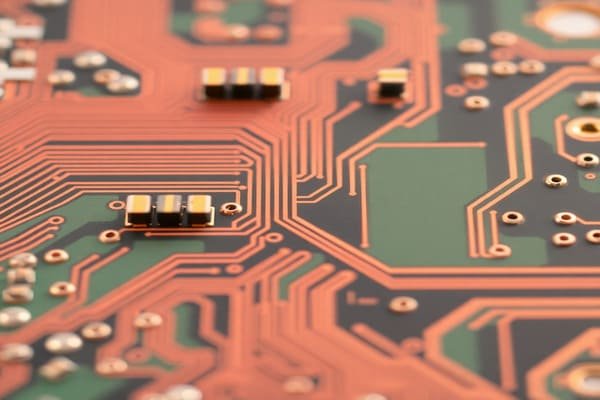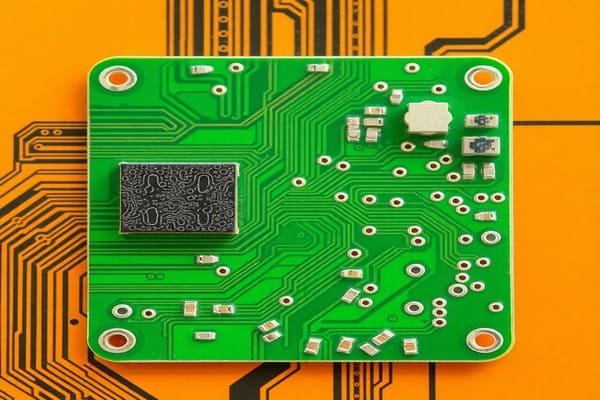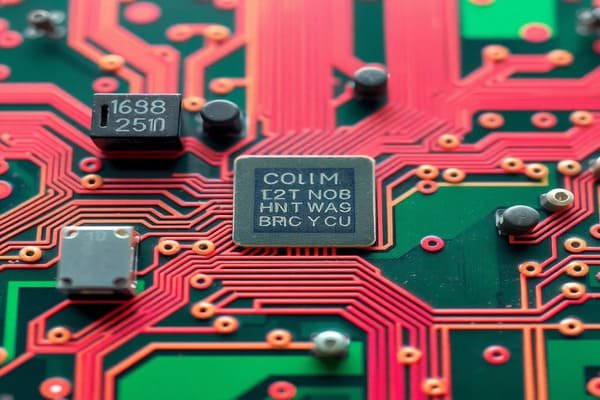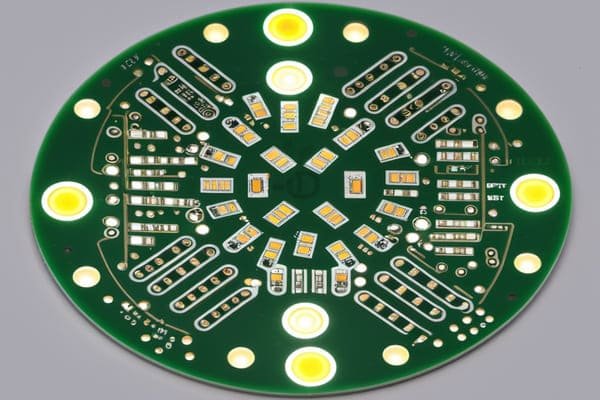Why is Quality Control Important in PCB Production?

Why is Quality Control Important in PCB Production?
Have you ever faced unexpected failures in your electronic devices due to faulty PCBs? It can be incredibly frustrating and costly when products don't perform as intended. Poor quality control in PCB production can lead to unreliable products, increased return rates, and damaged reputations. But there's a solution. Implementing robust quality control measures ensures that every PCB meets the highest standards of reliability and performance.
Quality control is essential in PCB production to ensure product reliability and customer satisfaction.
Maintaining high-quality standards involves adhering to strict processes, obtaining necessary certifications, and continuously monitoring production. Let's explore the importance of quality control in PCB manufacturing and how it can benefit your business.
[Table of contents]
- What Are the Key Quality Control Standards in PCB Manufacturing?
- What Quality Control Processes Ensure PCB Reliability?
- Why Are Certifications Crucial in PCB Production?
- How Does Quality Control Impact Buyer Confidence?
- Conclusion
What Are the Key Quality Control Standards in PCB Manufacturing?
Quality control standards set the benchmark for PCB production, ensuring consistency and reliability in every board produced.
Adhering to quality control standards is fundamental to producing reliable and high-performance PCBs.
Important Quality Control Standards
IPC-A-600
This standard defines the acceptability of PCB workmanship. It covers aspects like solderability, surface finish, and dimensional accuracy.
ISO 9001
ISO 9001 focuses on quality management systems, ensuring that manufacturers consistently meet customer and regulatory requirements.
UL Certification
Underwriters Laboratories (UL) certification ensures that PCBs meet safety and performance criteria, which is essential for applications in various industries.
| Standard | Focus Area | Importance |
|---|---|---|
| IPC-A-600 | Workmanship and Quality | Ensures physical quality of PCBs |
| ISO 9001 | Quality Management | Guarantees consistent production |
| UL Certification | Safety and Performance | Validates reliability and safety |
What Quality Control Processes Ensure PCB Reliability?
Implementing effective quality control processes is vital to maintaining the integrity and functionality of PCBs.
Robust quality control processes prevent defects and ensure that PCBs perform reliably in their intended applications.
Essential Quality Control Processes
Incoming Material Inspection
Checking raw materials for defects before production ensures that only high-quality components are used in PCB manufacturing.
In-Process Inspection
Regular inspections during the manufacturing process help identify and rectify issues early, reducing the risk of defects in the final product.
Final Product Testing
Comprehensive testing of finished PCBs verifies their functionality and performance, ensuring they meet all specified requirements.
Dive Deeper
Incoming Material Inspection
Ensuring the quality of incoming materials is the first step in the quality control process. This involves:
- Component Verification: Confirming that all components meet specified standards.
- Supplier Audits: Regularly evaluating suppliers to ensure they adhere to quality requirements.
In-Process Inspection
Continuous monitoring during production helps maintain quality standards. Key activities include:
- Automated Optical Inspection (AOI): Using machines to detect defects in real-time.
- Manual Inspections: Skilled technicians visually inspect PCBs for any anomalies.
Final Product Testing
Thorough testing guarantees that the PCBs are ready for deployment. Common tests include:
- Electrical Testing: Ensuring all circuits function correctly.
- Thermal Testing: Verifying that PCBs can withstand operating temperatures.
| Process Stage | Key Activities | Benefits |
|---|---|---|
| Incoming Material | Component verification, supplier audits | Prevents defects from the start |
| In-Process | AOI, manual inspections | Early defect detection |
| Final Product Testing | Electrical and thermal testing | Ensures functionality and safety |
Why Are Certifications Crucial in PCB Production?
Certifications validate the quality and reliability of PCBs, providing assurance to buyers and enhancing marketability.
Certifications demonstrate a commitment to quality and compliance, building trust with customers and stakeholders.
Importance of Certifications
Building Trust with Customers
Certifications like ISO 9001 and UL reassure customers that the PCBs meet high-quality and safety standards.
Facilitating Market Access
Many industries require specific certifications for their products. Having these certifications allows manufacturers to enter and compete in these markets.
Enhancing Brand Reputation
Certified manufacturers are perceived as more reliable and professional, which can lead to increased customer loyalty and business growth.
Dive Deeper
ISO 9001 Certification
ISO 9001 certification ensures that a company has a robust quality management system in place. Key benefits include:
- Consistent Quality: Maintains high standards across all production stages.
- Customer Satisfaction: Focuses on meeting customer needs and improving satisfaction.
UL Certification
UL certification is essential for PCBs used in safety-critical applications. It offers:
- Safety Assurance: Guarantees that PCBs meet safety standards.
- Market Credibility: Enhances reputation in industries like automotive and medical devices.
| Certification | Purpose | Benefit |
|---|---|---|
| ISO 9001 | Quality Management | Ensures consistent production quality |
| UL Certification | Safety and Performance | Validates safety and reliability |
| IPC Standards | Workmanship and Quality Control | Guarantees high physical quality |
How Does Quality Control Impact Buyer Confidence?
Effective quality control directly influences buyer confidence, leading to stronger business relationships and repeat business.
Buyers prioritize quality control as it ensures the reliability and longevity of the PCBs they purchase.
Enhancing Buyer Confidence
Consistent Product Quality
Maintaining high-quality standards consistently reassures buyers that they are receiving reliable products.
Transparency in Processes
Providing visibility into quality control processes builds trust and demonstrates commitment to excellence.
Responsiveness to Issues
Addressing quality issues promptly and effectively shows buyers that you prioritize their satisfaction and product performance.
Dive Deeper
Consistent Product Quality
Consistency is key in maintaining buyer trust. This involves:
- Standardized Procedures: Following established protocols to ensure uniformity.
- Regular Audits: Conducting internal and external audits to maintain quality standards.
Transparency in Processes
Being transparent about quality control practices includes:
- Detailed Documentation: Providing comprehensive records of quality checks and standards.
- Open Communication: Keeping buyers informed about production processes and any potential issues.
Responsiveness to Issues
Quickly resolving quality issues enhances reputation. This can be achieved by:
- Efficient Problem-Solving: Implementing effective strategies to address defects.
- Continuous Improvement: Regularly updating processes based on feedback and findings.
| Impact Area | Quality Control Contribution | Outcome |
|---|---|---|
| Product Quality | Consistent standards and audits | Reliable and high-performing PCBs |
| Transparency | Clear communication and documentation | Increased trust and credibility |
| Issue Resolution | Prompt and effective handling | Enhanced reputation and loyalty |
Conclusion
Quality control is a cornerstone of successful PCB production. By adhering to rigorous standards, implementing effective processes, obtaining essential certifications, and maintaining transparency, manufacturers can ensure the reliability and performance of their PCBs. This not only satisfies customers but also builds long-term trust and competitiveness in the market. Prioritizing quality control is not just about meeting standards—it's about delivering excellence and fostering strong, lasting relationships with buyers. Embrace quality control as a fundamental aspect of your PCB manufacturing process to drive success and ensure customer satisfaction.





